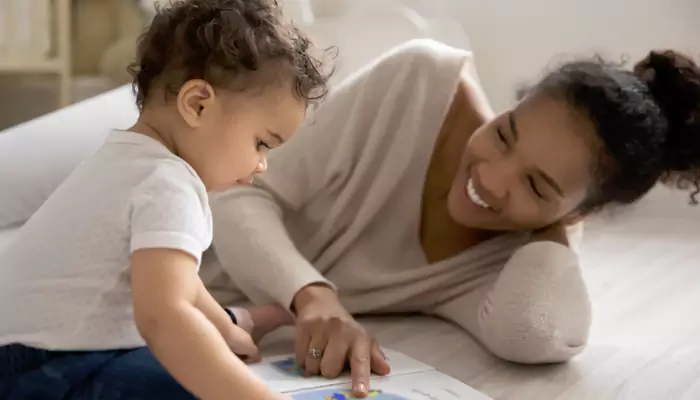The New Kid In Town – Playful Parenting And Its Benefits
In a world where parenting often comes with a rulebook of dos and don'ts, playful parenting emerges as a breath of fresh air, redefining the parent-child relationship.
- Ishani Karmakar
- 23 January, 2024
- 2 mins ago

The New Kid In Town – Playful Parenting And Its Benefits
In a world where parenting often comes with a rulebook of dos and don'ts, playful parenting emerges as a breath of fresh air, redefining the parent-child relationship.
Playful parenting is a concept that focuses on using play as a medium to connect, teach, and grow with your children. It involves stepping into the child's world and engaging with them on their level. This could mean playing dress-up, engaging in sports, or even participating in their fantasy play. It's about being less of a director and more of a co-actor in the child's play.
The Science Behind Playful Parenting
Studies have consistently shown the benefits of play in children's cognitive, emotional, and social development. A study by Ginsburg (2007) for the American Academy of Pediatrics highlights the importance of play in developing creativity, imagination, and problem-solving skills. Furthermore, play has been linked to improved language skills, emotional regulation, and social competence.
Enhancing Emotional Intelligence
Playful parenting aids in the development of emotional intelligence in children. By engaging in role-play or imaginative scenarios, children learn to understand and express their emotions better. Parents can use these play situations to teach children about empathy, frustration tolerance, and how to handle complex emotions.
Strengthening the Parent-Child Bond
Play creates a unique bond between parent and child. It establishes a safe, nurturing environment where children feel loved and understood. This bonding is crucial for a child’s sense of security and self-esteem. A 209 study in the Journal of Child and Family Studies found that parents who engaged in playful activities with their children reported stronger emotional bonds.
Encouraging Learning and Creativity
Play is not just about fun; it’s an essential tool for learning. Through play, children explore concepts like cause and effect, practice new skills, and use their imagination to solve problems. For example, building a tower with blocks teaches basic physics principles, while role-playing different professions sparks creativity and curiosity.
Playful Parenting in a Digital Age
In today's digital world, it's crucial to balance screen time with interactive play. While technology offers educational benefits, it cannot replace the physical, emotional, and social learning that comes from hands-on play. Parents should strive to provide a diverse range of play experiences, including outdoor activities and creative arts.
Tips for Effective Playful Parenting

Follow your child’s lead: Let them choose the activity and direct the play.
Be fully present: Avoid distractions and focus entirely on the play.
Use play to teach: Incorporate lessons about values, emotions, and social skills.
Keep it simple: Remember, the goal is to connect, not to entertain.
Include physical play: Activities like running, jumping, and dancing are great for development.
For An Effective Playful Parenting Session, Try These:
Embrace Spontaneity
Incorporate Learning into Play
Foster Independence Through Play
Use Play to Navigate Difficult Emotions
Celebrate Effort, Not Just Success
Mix Ages in Play
Set Aside Regular Playtime
Introduce Cultural Activities
Play Outside
Use Positive Reinforcement
Adapt Play to Your Child's Interests
Sometimes, bending the rules or changing them can make play more fun and less structured. This flexibility can spur creativity and problem-solving skills. Ensure the play area is safe and free from hazards. A secure environment gives children the freedom to explore and play without unnecessary restrictions.
By integrating these tips into your parenting style, you can maximize the benefits of playful parenting, creating a joyful, enriching, and nurturing environment for your child's growth and development.






